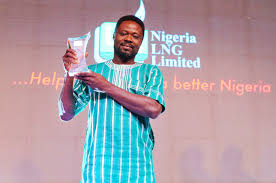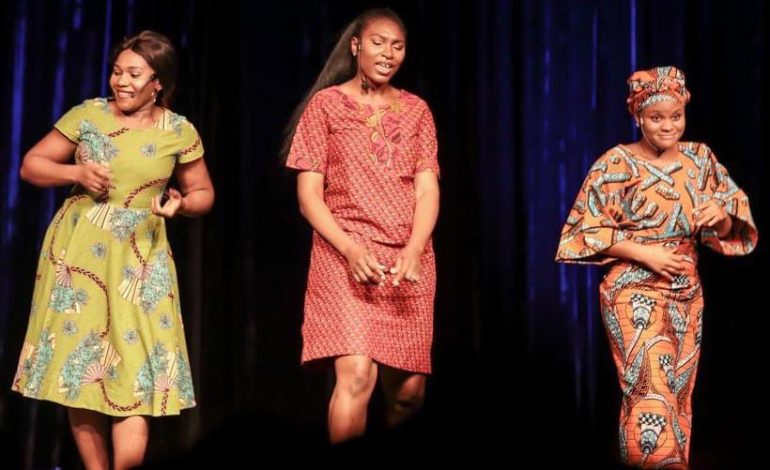Akoh, Ezenwanebe, Liman to serve as drama jury for The Nigeria Prize for Literature 2023

* NLNG should sponsor the actual production of the winning play across the country
* There must be diversity to safeguard the integrity of the judging process
* Drama texts should not merely be subjected to arm-chair readings
By Anote Ajeluorou
PROFESSOR Osita Catherine Ezenwanebe of Theatre Arts, Department of Creative Arts, University of Lagos, Professor Ameh Dennis Akoh of drama and critical theory at Alex Ekwueme Federal University, Ndufu-Alike, Ikwo, Ebonyi state and Dr. Rasheedah Liman of the Department of Theatre and Performing Arts, Ahmadu Bello University, Zaria have been appointed the three-man jury for The Nigeria Prize for Literature 2023. The International Consultant is Victor Kwabena Yankah, an Associate Professor at the Department of Theatre and Film Studies at Cape Coast University, Ghana. The genre in focus this year is drama, and these three academics will wade through the deluge of entries expected to be entered for the prize and come up with the best published play from Nigerian playwrights living both inside and outside the country. Entry submission ends March 31, 2023. The reward as usual is a handsome USD$100,000 to the best playwright.
Unlike last year when poetry was the genre in focus, won by Romeo Oriogun with his poetry collection, Nomad, and had one academic (Prof. Egya E. Sule – chairman)and two non-academics (Toyin Adewale-Gabriel and Dike Chukwumerije)) as judges, it’s a tale of an all-academic jury this year, a situation some industry watchers see as a roll back of the gains a mixed jury for the prize had made. This is also true of the Advisory Board for the prize, with an all-academics membership – Professors Akachi Ezeigbo (chairperson), Olu Obafemi and Ahmed Yerima.

Former President of Association of Nigerian Authors (ANA) and finalist for drama in The Nigeria Prize for Literature 2018, Malam Denja Abdullahi (Death and the King’s Grey Hair), the year Dr. Soji Cole won with Embers, took a critical look at what the prize has in store for playwrights who might enter for it and the need to start putting the last three final plays on stage as a critical aspect of judging the performance values of the eventual winning play. It is the expectation of many theatre lovers that the prize sponsor Nigeria Liquified Natural Gas Limited (NLNG) will put the final three plays on stage for better adjudication since a play is adjudged not to be good enough until it has enjoyed performance on stage beyond awarding it the big prize.
Abdullahi spoke on expectations for dramatists, the all-academics jury at the exclusion of a mixed one and drama on stage beyond the cold world of the text. According to him, “The patronage of drama is greater than poetry, because it is a much more culturally grounded art than poetry. Since 2018, my play that was shortlisted for the NLNG prize that year has been performed in about 30 stages across Nigeria. It showed that my being on the shortlist that year was no fluke. A lot of people read drama as text, but drama becomes complete only when it is acted on stage. To put up a play is a tasking venture and it takes more commitments and logistics; that is why drama cannot become an every day thing except in the schools where it is staple in training theatre and performing arts students. There, production costs can be halved or nearly eliminated, because the logistical resources to put up a play are readily available. Outside schools, it costs a lot to move a drama from print to stage.”
For the final three plays, Abdullahi proposed that “40% (marks should be awarded) for text and 60% for stage,” but conceded that “though there (are) some drama texts written solely for reading – they are called literary drama or dramatic literature. So, in a competition such as that of NLNG, the emphasis is actually on the literary quality of the drama as text.
“A lot of good drama is being written and published in Nigeria. The snag is that only a few get seen on stage. I expect a lot of entries but it may not be up to the entries received for the poetry prize last year. Drama is a much more technical art than poetry and writing it is often deliberate and backed up with a lot of research. In the end, I expect a good play to win. The prize sponsor, NLNG should go further this year by sponsoring the actual production of the winning play across the country if possible. Just awarding the ultimate prize of $100,000 is not enough when it comes to drama. Saying a play won that big must be justified on stage for all to see and appraise.”
Abdullahi is concerned that the advisory board has reversed the mixed jury the prize had last year to only an academic one, saying, “I had thought NLNG would learn from the successful experimentation in its combination of judges last year. Drama is a genre that cannot be confined to academia. The greatest playwrights and dramatists we have produced in this country are not necessarily academics. I had expected renowned playwrights, dramatists and thespians like Ben Tomoloju, Jahman Anikulapo, Segun Adefila or even play producers like the Terra Culture woman Mrs. Bolanle Austen-Peters on the panel. There are also renowned dramatists working in the public sector who could be used as judges. Drama is not a closet art, it is for public viewing so the practitioners are important in adjudging what a good drama text with performance potential is. NLNG in its yearly selection of judges should be mindful of in-breeding which leads to a situation where a group of academics acting as judges award the prizes to their colleagues in academia. There must be diversity to safeguard the integrity of the judging process. Literature is not only meant for the academia; it extends to the society and is consumed most and finds greater relevance outside the academy.”
While Prof. Austine Amanze Akpuda of Abia State University, Uturu is in agreement that the final three plays should be subjected to stage scrutiny with the prize sponsor bearing the cost of such production, he raised some initial concerns, when he said, “Although it would have been interesting rewarding drama texts that were first presented on stage before or after being published, we should also reckon with the fact that such consideration would entail compelling the jury to “determine to what extent the criteria for allocating scores should be made to favour, either the stage performances or the published texts, determine what directing styles would be accorded preference over others, be in consultation with informed stage drama/theatre critics who should provide the necessary guidelines for such evaluation, etc,” but also conceded that “As important as the idea of considering the stage value of the drama texts could be, it is not going to be as easy as it sounds.”
The Executive Director of Jos Repertoire Theatre and organisers of Jos Festival of Theatre, Dr. Patrick-Jude Otteh suggested that unlike poetry, prose and children’s literature, drama shouldn’t be subjected to arm-chair reading and adjudication only since it only comes alive when put on stage where its dramatic elements would be better realised.
“I belong to the school of thought that (drama) texts should not merely be subjected to arm-chair readings,” Jude Otteh said. “Due to my directing background, I believe the model should be performance-based and the text itself. We have seen texts that cannot withstand the rigors of the stage! We have seen texts that are so over-populated with characters that you begin to wonder who says what. I still believe that each text that is put in the “ring” should have been subjected to the stage. A 50-50 affair (of awarding scores) certainly works out. It makes for plays that would be well rounded, not plays that are suitable for reading and not performance.”



